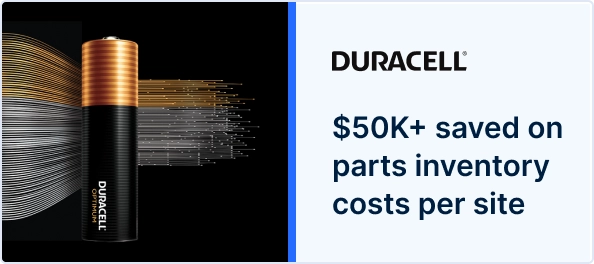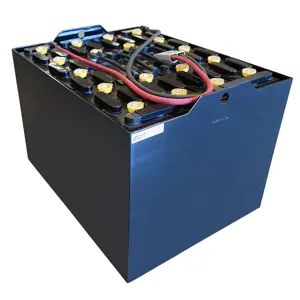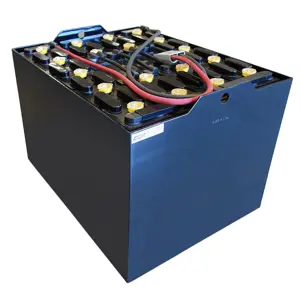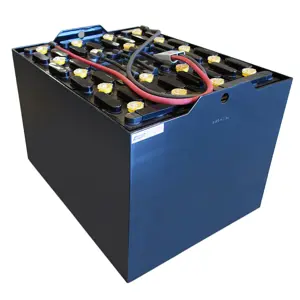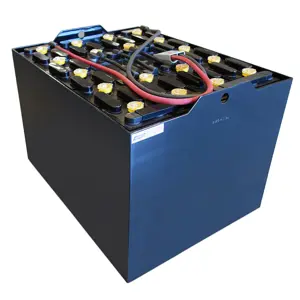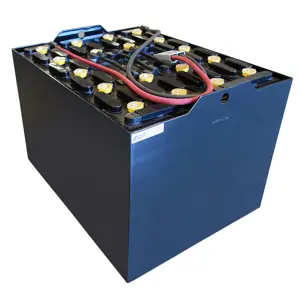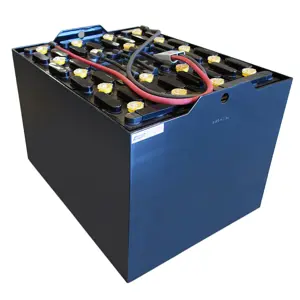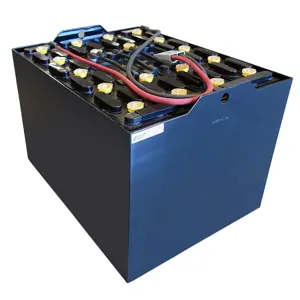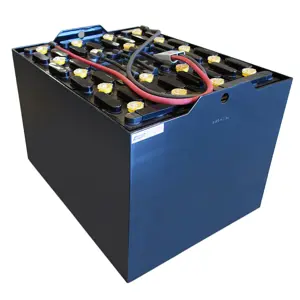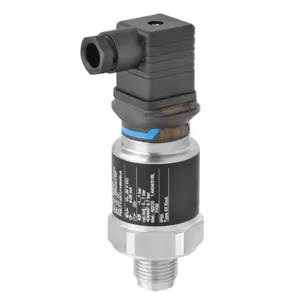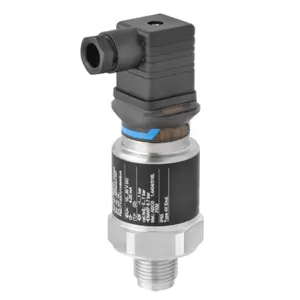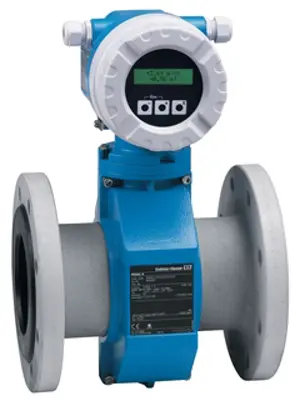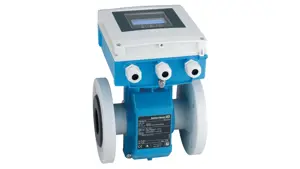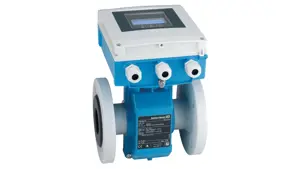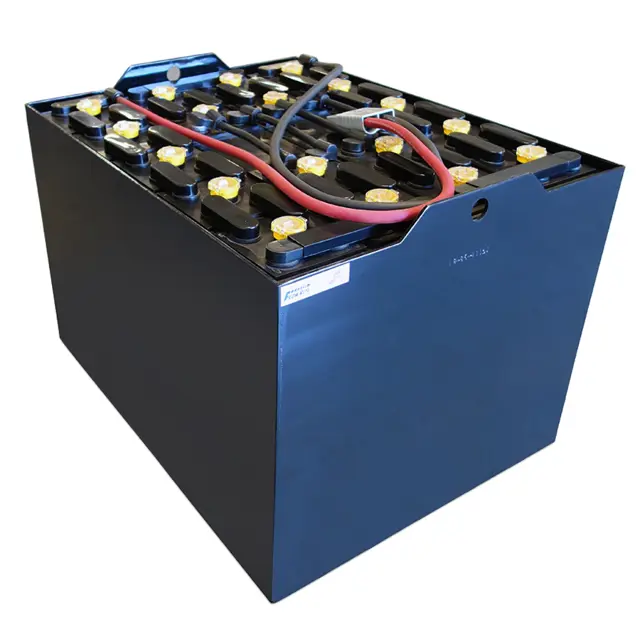

The Crown Battery 18-13USI413 is a high-performance industrial battery designed for reliable energy storage and efficient power delivery. Known for its durability and longevity, this model is ideal for various applications, ensuring optimal performance in demanding environments. Trust Crown Battery for your energy solutions.
Turn manuals into instant answers
with your AI-powered assistantTurn manuals into instant answers
with your AI-powered assistant
Manual for Crown Battery 18-13USI413
Complete asset maintenance, one click away
Get instant access to all the maintenance information you need. Empower technicians to perform preventive maintenance with asset packages, ready to use right out of the box.
Documents & Manuals
Find all the essential guides in one place.
Tensioning Guide
Belt-diagram
C-120 pulleys
+ 13 more
Work Order Templates
Pre-built workflows to keep your asset running smoothly.
Daily Electrical System Inspection
Replace Roller and Pulley
Install Engine B-120
+ 29 more
Procedures
Integrate maintenance plans directly into your work orders.
Motion Industries
Applied Industrial Technologies
Electrical Brothers
+ 5 more
Parts
Access the parts list for your equipment in MaintainX.
Drive Motor
B2 Rollers
Tensioning System
+ 40 more

Crown Battery 18-13USI413
Create an account to install this asset package.
Maintenance Plans for Crown Battery Model 18-13USI413
Integrate maintenance plans directly into your work orders in MaintainX.
Battery Maintenance
- Properly charge battery
- Add water as needed
- Clean as required
Effective Battery Maintenance:
As is true with any piece of industrial equipment, proper maintenance not only keeps it operating to its design specifications, but also helps prolong the equipments life. The following effective battery maintenance tips can help achieve the best performance out of your industrial battery
1. Maintain the proper electrolyte level. Avoid overfilling
2. Charge properly, check charger controls and instruments periodically. Calibrate meters as needed
3. Repair any damage promptly. Minor damage, if not repaired in a timely manner, can lead to major damage
4. Don't overcharge, many batteries deliver short service life from too much charge
1 Daily Battery Water Replacement
- A certain amount of water loss is normal in all batteries and it should be replaced with "pure" tap or distilled water. In some areas around the country, tap water may contain chemicals or other impurities harmful to batteries. If water is needed, add just enough to bring the electrolyte to the proper level. Batteries should be filled only at the end of the charging cycle
- Overfilling is the most common error made when watering and it can cause tray corrosion. Since tray corrosion can cause extensive damage to batteries and vehicles, extreme caution must be taken to avoid overfilling the batteries
Tray Corrosion:
- Motive power battery trays are mostly made of steel that is protected with an acid resistant coating
Regardless of how good the coating is, if a break in the coating exposes the steel tray to sulfuric acid spilled from the battery, the acid will corrode the tray. How quickly the tray corrodes depends on how much and how often acid is spilled on top of the battery and how often the battery is cleaned
- The major cause of tray corrosion is overwatering or overfilling a battery. When overfilled, the electrolyte will spill on top of the battery. Although the water in the electrolyte will evaporate, the highly concentrated acid solution remains and gives the appearance of dampness. If the acid is not removed, the tray will eventually corrode
- To prevent corrosion, batteries should be cleaned any time the accumulation of dampness or acid becomes significant
- A good technique to follow while watering batteries is to use a flashlight focused on the vent hole being watered. Visually watch the electrolyte level rise and stop watering the instant the proper level is reached
- Each cell is filled the same way. Cell filling equipment that automatically fills batteries to the proper level is available
Battery Repair
CAUTION: ONLY EXPERIENCED PERSONNEL SHOULD ATTEMPT BATTERY REPAIRS!
BEFORE PERFORMING ANY REPAIRS, REMOVE THE BATTERY FROM THE LIFT TRUCK. ALWAYS WEAR SAFETY GLASSES AND A FACE SHIELD WHEN WORKING ON OR NEAR BATTERIES
Battery age in years
Battery cycle life
Battery service history
Estimate repair cost
Estimate replacement cost
Choose the action to be taken
Upload a photo of the battery
4 Yearly Battery Replacement
Warning: Battery replacement should be done by trained personnel only!
Old battery removed successfully?
New battery installed successfully?
Enter the voltage reading of the new battery
Sign off on the battery replacement
Battery Test
- Test batteries using three testing instruments
1. voltmeter
2. hydrometer
3. thermometer
- The specific gravity and open circuit voltage readings are normally in direct proportion to each other; consequently, a voltmeter or hydrometer can be used to check the battery
- The use of the voltmeter is a faster method of approximating the individual cell state of charge and can reduce dramatically the time required for routine battery checking. When using the voltmeter method, take specific gravity readings on the two cells having the highest and lowest voltage readings
- This will confirm both cells state of charge and accurately pinpoint the difference in the state of charge between them. The voltmeter is used when on‐charge or on‐discharge voltage readings are needed
- A battery thermometer is read like a normal thermometer. A proper thermometer should have specific gravity correction marked on its scale
- The hydrometer has an extra‐long scale to make readings more accurate. For ease of correcting for temperature, the specific gravity corrections are marked on the scale of the thermometer. The cell tester (voltmeter) has a 1.5 to 3.0 volt scale and an easy‐to‐handle, one‐piece terminal probe;
Unlock efficiency
with MaintainX CoPilot
MaintainX CoPilot is your expert colleague, on call 24/7, helping your team find the answers they need to keep equipment running.
Reduce Unplanned Downtime
Ensure your team follows consistent procedures to minimize equipment failures and costly delays.
Maximize Asset Availability
Keep your assets running longer and more reliably, with standardized maintenance workflows from OEM manuals.
Lower Maintenance Costs
Turn any technician into an expert to streamline operations, maintain more assets, and reduce overall costs.
Thousands of companies manage their assets with MaintainX
















